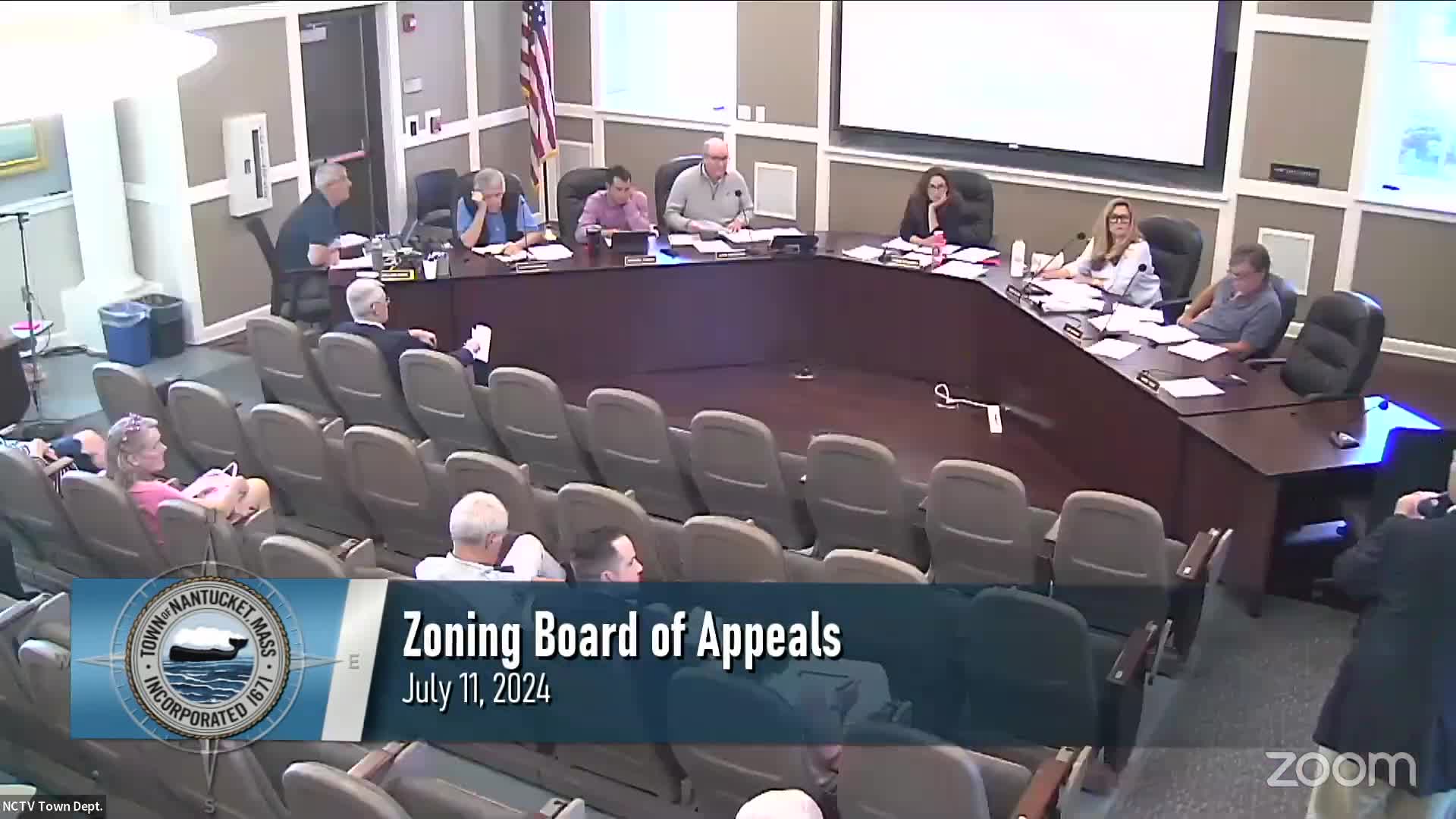Zoning Board Faces Crucial Decision on Short Term Rentals
July 11, 2024 | Nantucket County, Massachusetts

This article was created by AI summarizing key points discussed. AI makes mistakes, so for full details and context, please refer to the video of the full meeting. Please report any errors so we can fix them. Report an error »

In a recent government meeting, Dennis Murphy, representing the Nantucket Land and Water Council, emphasized the critical relationship between zoning regulations and resource depletion on the island. Murphy argued that the council's interest in the ongoing litigation stems from concerns about the intensity of property use, particularly regarding short-term rentals (STRs).
Murphy pointed out that a judge had previously ruled that STRs are not permitted as a principal use in residential districts, a decision based on specific facts of the case. He stressed that the current deliberations should focus solely on the established legal record, rather than extraneous policy arguments or unrelated cases. He noted that the zoning bylaw does not explicitly permit STRs, and any use that is not expressly allowed is prohibited.
The discussion also highlighted the case of the Grape family, who purchased their Nantucket property with the intention of renting it out. Murphy stated that the Grapes used the property for STR purposes significantly more than for personal use, which he argued indicates that the rental activity is not merely accessory but rather the primary use of the property.
During the meeting, there was a moment of clarification regarding the Grapes' intentions in purchasing the property. While Murphy initially suggested that renting was the sole purpose, he later corrected himself, acknowledging that the judge found the rental potential to be one of several factors in the purchase decision.
Attorney Pickering Cook, representing the Grapes, reiterated that the board's decision should hinge on whether the Grapes' use of the property aligns with the definition of accessory use under the zoning bylaw. He argued that since the Grapes rent the property more than they use it personally, it cannot be classified as an accessory use.
The meeting underscored the complexities of zoning laws and the ongoing debate over the regulation of short-term rentals in Nantucket, with implications for both local governance and environmental stewardship. The board is now tasked with making a decision based on the established legal framework and the specific facts of the case.
Murphy pointed out that a judge had previously ruled that STRs are not permitted as a principal use in residential districts, a decision based on specific facts of the case. He stressed that the current deliberations should focus solely on the established legal record, rather than extraneous policy arguments or unrelated cases. He noted that the zoning bylaw does not explicitly permit STRs, and any use that is not expressly allowed is prohibited.
The discussion also highlighted the case of the Grape family, who purchased their Nantucket property with the intention of renting it out. Murphy stated that the Grapes used the property for STR purposes significantly more than for personal use, which he argued indicates that the rental activity is not merely accessory but rather the primary use of the property.
During the meeting, there was a moment of clarification regarding the Grapes' intentions in purchasing the property. While Murphy initially suggested that renting was the sole purpose, he later corrected himself, acknowledging that the judge found the rental potential to be one of several factors in the purchase decision.
Attorney Pickering Cook, representing the Grapes, reiterated that the board's decision should hinge on whether the Grapes' use of the property aligns with the definition of accessory use under the zoning bylaw. He argued that since the Grapes rent the property more than they use it personally, it cannot be classified as an accessory use.
The meeting underscored the complexities of zoning laws and the ongoing debate over the regulation of short-term rentals in Nantucket, with implications for both local governance and environmental stewardship. The board is now tasked with making a decision based on the established legal framework and the specific facts of the case.
View full meeting
This article is based on a recent meeting—watch the full video and explore the complete transcript for deeper insights into the discussion.
View full meeting
